Covid-19: 'The night-time industry needs to come back'
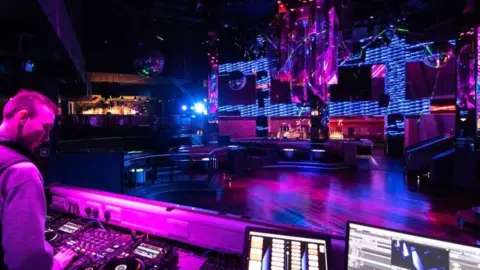 Getty Images
Getty ImagesNightclubs were some of the first businesses to close at the start of the coronavirus pandemic and haven't been able to open since. More than a year on, their wait continues. How is the night-time economy in a rural market town hoping to bounce back when venues can finally reopen?
'It's going to be a blank canvas to start again'
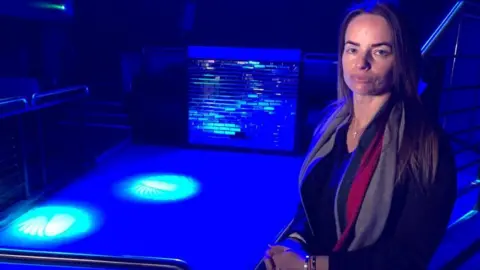
When nightclub owner Beth Hurley closed her venue's doors a year ago, she thought it was going to be for just a few weeks.
A year on, the doors are still closed.
"One of the DJs said, 'I don't know when we'll walk back in here', and I said 'don't say that' - and then here we are," she says.
"We talk about that conversation a lot and it haunts us because we had no idea."
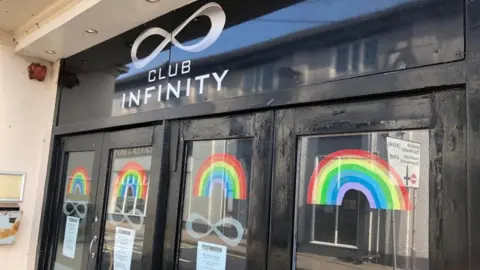
Ms Hurley runs Club Infinity in Sudbury, a rural market town in Suffolk.
As with other nightclub owners up and down the country, she was not allowed to open her venue when restrictions eased over the summer and had to watch on as pubs, bars and restaurants served customers.
By the time June comes around - when it is hoped all legal restrictions on social contact will be lifted - nightclubs will have been closed for 15 months.
"Financially it's been horrific and emotionally it's been hard for everyone that works here," she says.
"A nightclub is a lifestyle choice: you choose to give up your weekends to deal with the general public and it's like a family. So to have that taken away from you without having any preparation, it doesn't feel real."
She says nightclubs were also excluded from a number of government grants.
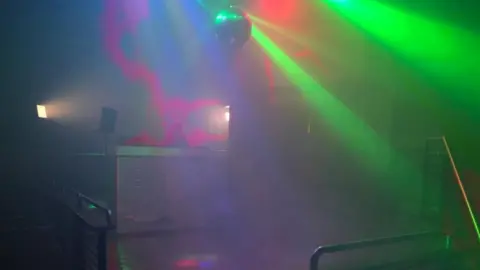
Looking forward, she says the night-time industry "needs to come back".
"Everyone needs it - the people who work here need it and the people who come here need it."
While Sudbury's nightlife industry vies to keep pub and club-goers in the town, rather than heading off to nearby Ipswich, Colchester or Bury St Edmunds, people there say it benefits from attracting people from surrounding villages and also by being somewhere people feel "safe".
Ms Hurley says: "A lot of people were regulars who would come here even if they popped in for one drink after being at one of the pubs or whether they came here from 10pm. You knew all the same people.
"When people came here, they felt safe, they felt looked after. The security team, the management team, we're all long-standing and as opposed to them going somewhere else like Colchester, this is their home town, and they felt a lot safer."
In terms of reopening, she says "it's going to be a blank canvas to start again".
"It's going to be a total rebuild of a business," she says.
'Will people's going out habits change?'
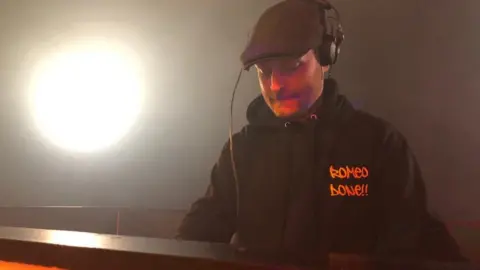
"If you would've told me 12 months ago that we would be shutting and we wouldn't be DJing, and I wouldn't have a dancefloor full, I wouldn't have believed you," says Gareth Harper.
He has been a DJ for all of his working life and his usual packed calendar of bookings has been empty for the last year.
Mr Harper says clubbing is "so important" to so many people growing up - and that's been something that's been lost this past year.
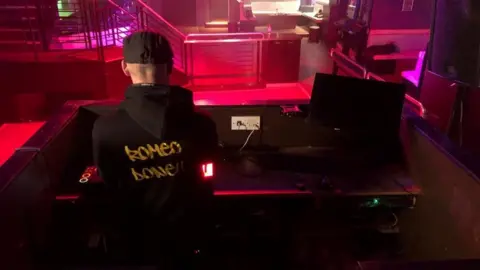
He said: "As soon as they hit 18 they're into a nightclub, they're into a bar, and they find what kind of music they like, they find what kind of people they want to associate themselves with, they find what kind of dancing they like doing, they find themselves in such a different way in a nightclub than what you would express yourself in everyday life.
"Now a whole generation of people have lost that."
But, he says, the enforced closure could bring a change in people's going out habits.
"Lots of people pre-drank at home because they could get it from supermarkets so cheap," he said.
"Is that mentality now going to go because they haven't been out for so long? Are they going to say 'stuff staying at home, I'm going out'?"
'We have a loyal customer base'
 Rachel Price
Rachel PriceTown centre manager Rachel Price admits Sudbury isn't necessarily first on the list of somewhere you'd go for a night out.
But, she says, it draws in trade from its satellite villages and its train line makes it somewhere many people start their night out before heading into the larger town of Colchester, just over the county border in Essex.
However, she says Sudbury boasts lots of restaurants, bars and pubs, and its nightlife was "picking up" before the first lockdown began.
 Sudbury Town Council
Sudbury Town CouncilA number of new venues had opened and the past year had been a "real blow" for them, she adds.
Over the last year, she says more people have been discovering what is on their doorstep and it is hoped Sudbury's hospitality sector will benefit from that when it is allowed to reopen.
"When restrictions relaxed in the summer, the footfall in the high street bounced back straight away so we hope the same thing will happen again if the roadmap happens as we expect it to do," she said.
"People are dying to socialise again and we have a loyal customer base here in Sudbury."
She says the town council has decided to keep the Market Hill area pedestrianised for when outdoor hospitality returns - due to be from 12 April - so restaurants and cafes can spill outside.
Although that will not help places like the nightclub, she says the council will be there to support them when they can reopen.
'If we can get through this, we can get through anything'
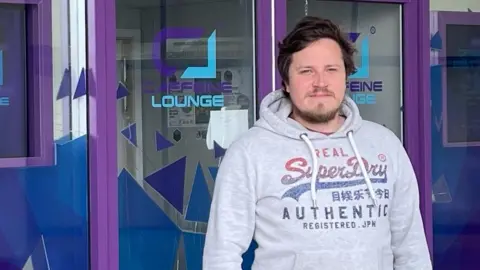 William Ward
William WardWilliam Ward had just opened gaming venue Caffeine Lounge three months before the first lockdown.
He says things were just starting to pick up before the first coronavirus wave hit.
And although he was able to open back up between July and September, he says he lost 90% of revenue overnight when the 22:00 curfew came in as "people were not coming out".
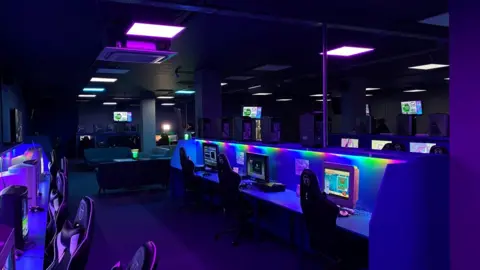 Caffeine Lounge
Caffeine LoungeAs well as being a venue for gaming, the business has a cocktail bar and opens late.
He says he will hold off opening again until June because it would be "too much of a financial burden" otherwise, and "not worth it".
The 30-year-old started with 21 members of staff and is now down to six after having to let some of his workforce go.
He says keeping on top of the bills has been a "big headache" and trying to make plans for when they can reopen is a "real head-scratcher".
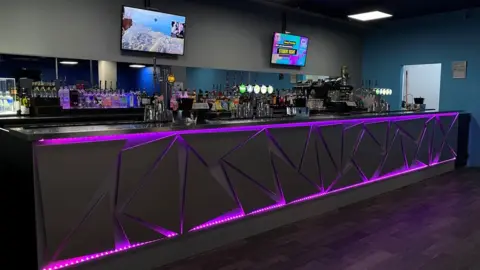 Caffeine Lounge
Caffeine LoungeMr Ward is looking at diversifying, including working with local authorities and charities to establish the gaming side of the business and working with children with special educational needs. He is also going to start serving food.
"The good thing about all of this is that it's the worst possible trading situation we could probably ever have been in and we are going to come out of it and still be here and for us that's very promising.
"The business is still viable - if we can get through this, we can get through anything," he says.

Find BBC News: East of England on Facebook, Instagram and Twitter. If you have a story suggestion email [email protected]
